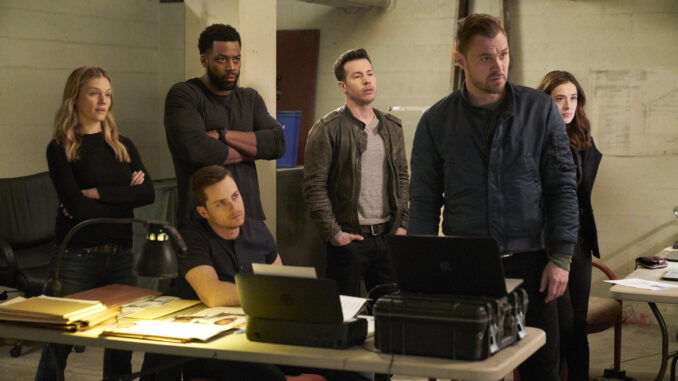
New Chicago P.D. Episodes: Jaw-Dropping Plot Moments You Missed
Chicago P.D., the gritty, street-level procedural from the Dick Wolf universe, has carved its niche not just through intense police work and morally ambiguous decisions, but through its relentless assault on the emotional well-being of its characters – and by extension, its audience. While the sirens wail and the cases close, it's often the subtle shifts, the profound personal tragedies, and the quiet devastations that leave the most lingering impact. In the recent seasons, amidst the rapid-fire investigations and the relentless pursuit of justice, some of the most truly jaw-dropping plot moments have been less about explosions and more about implosions – the slow, agonizing unraveling of beloved characters that, if you blinked, you might have truly missed the full weight of.
One such seismic shift, delivered with a quiet brutality that left fans reeling, was the understated departure of Detective Jay Halstead. For years, Halstead was the moral compass, the grounded foil to Voight’s ruthless pragmatism, and the beating heart of Intelligence alongside Hailey Upton. His exit, however, wasn't marked by a blaze of glory or a heroic sacrifice; it was a slow fade, a realization that the morally grey world of Intelligence was consuming him. The truly jaw-dropping element wasn't just that he left, but how. It wasn't a dramatic last stand, but a deeply personal, almost agonizing choice to leave his wife, his unit, and his life behind for a military deployment that felt more like an escape. This moment, stretched across a handful of episodes, wasn't a sudden explosion, but a creeping dread, watching a man who always fought for what was right finally admit that the fight was changing him into someone he didn't recognize. The full impact – the quiet heartbreak for Upton, the unspoken acknowledgment from Voight, the void left in the unit – was less a shockwave and more a deep, resonant ache that settled in, defining the seasons that followed.
Equally devastating, and perhaps more insidious in its impact, has been the protracted, psychological descent of Hailey Upton. Following the traumatic events involving Roy Walton and her subsequent cover-up with Voight, Upton began a slow, agonizing slide into a form of self-inflicted isolation. While the immediate aftermath of the Roy incident was shocking, the truly jaw-dropping plot moment was the subtle, relentless way her trauma manifested: her inability to connect, her widening emotional chasm from Halstead, her increasingly reckless behavior. It wasn’t a single act, but a haunting, pervasive current that ran beneath every case. We watched as her light dimmed, as she pushed away the very people trying to save her, her internal struggle often louder than the external gunfire. This wasn't a one-episode crisis; it was a multi-season character arc that quietly, painfully illustrated the profound psychological cost of their work, turning a strong, capable detective into a haunted shadow, a plot point that many might have attributed to simple character development rather than a deliberate, brutal depiction of sustained psychological breakdown.
Then there’s the gut-wrenching near-fatal shooting of Adam Ruzek in the Season 10 finale. While cliffhangers involving main characters are common, the sheer brutality and raw emotion surrounding Ruzek's injury felt uniquely visceral. What made it truly jaw-dropping wasn't just the bullet itself, but the immediate, panicked response from the unit, especially Burgess, and the subsequent, agonizing wait for news. The plot moment wasn't merely his injury, but the stripping away of his usual bravado, leaving him utterly vulnerable, forcing a reckoning with his past choices and his future. The raw desperation on Burgess's face, the desperate pleas of his colleagues, transformed a typical "hero in peril" trope into a profound exploration of love, loyalty, and the terrifying fragility of life in their line of work. It was a stark reminder that even the most seasoned officers are just one wrong step away from shattering their lives and the lives of those who love them.
Chicago P.D. continues to be a masterclass in controlled chaos, but its recent seasons have quietly upped the ante on emotional devastation. The truly jaw-dropping moments aren't always the loud ones; they are the insidious creeping of trauma, the quiet goodbyes that echo louder than any explosion, and the brutal reminders of mortality. If you weren't paying close enough attention, you might have missed the profound, character-redefining shifts that have left the Intelligence unit forever altered, proving that sometimes, the most shocking moments are the ones that unravel, rather than explode.
